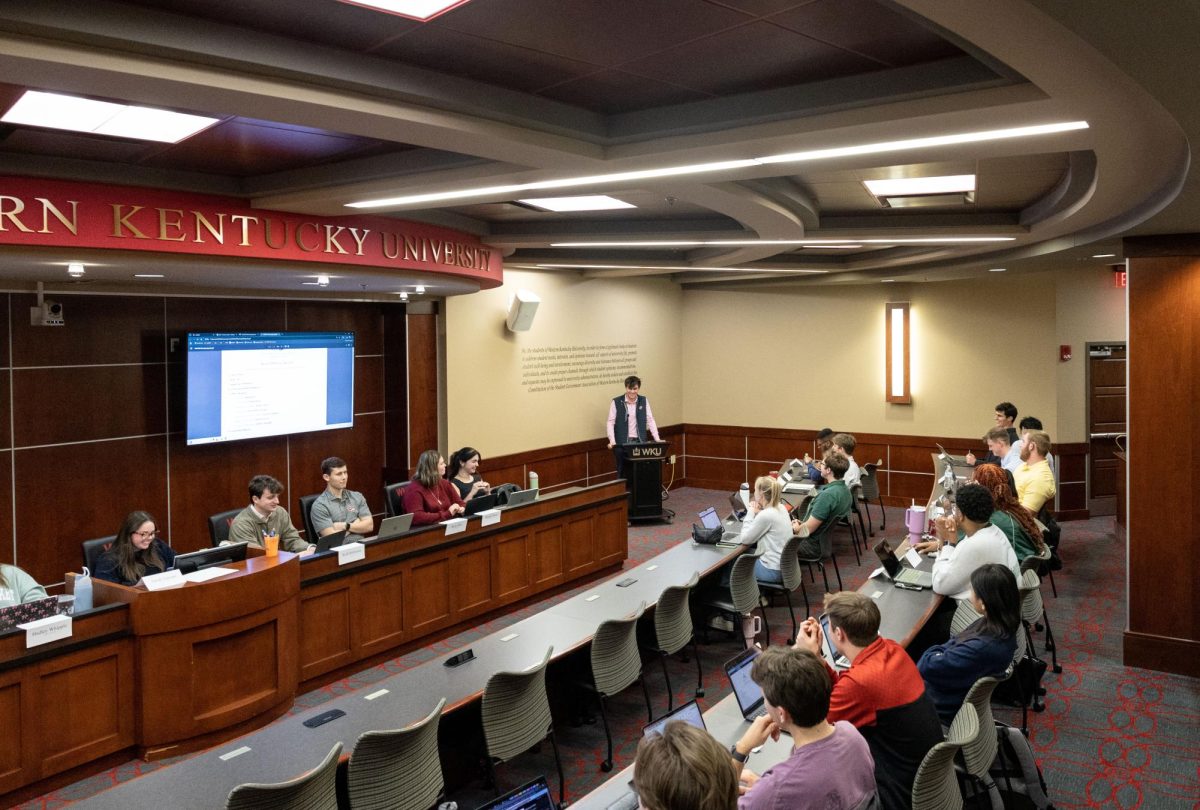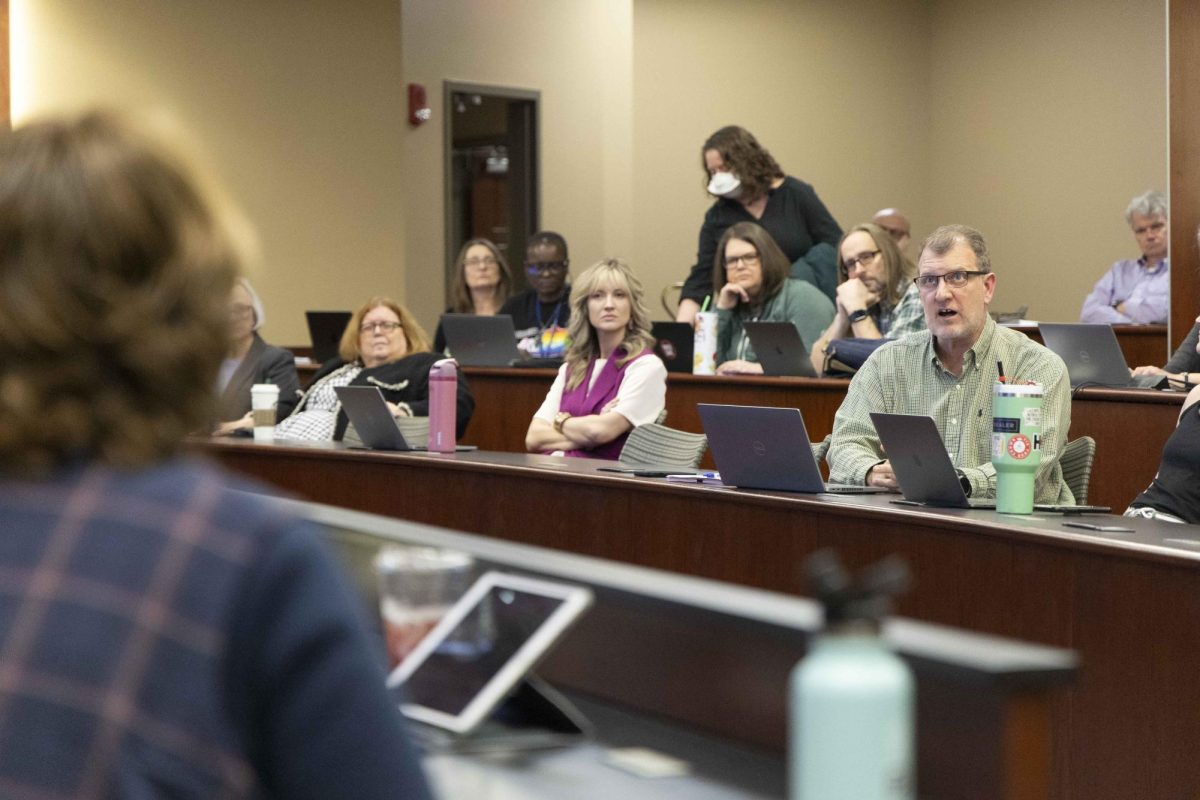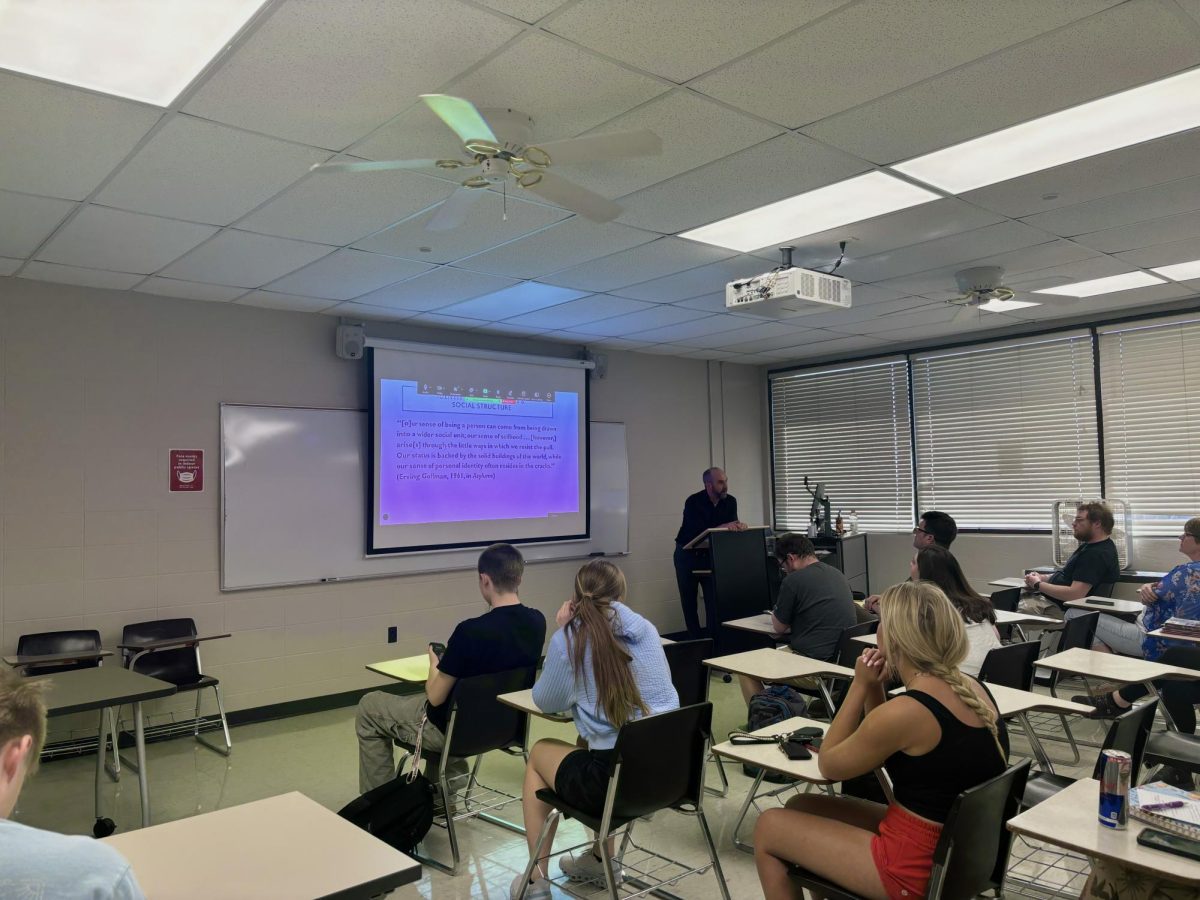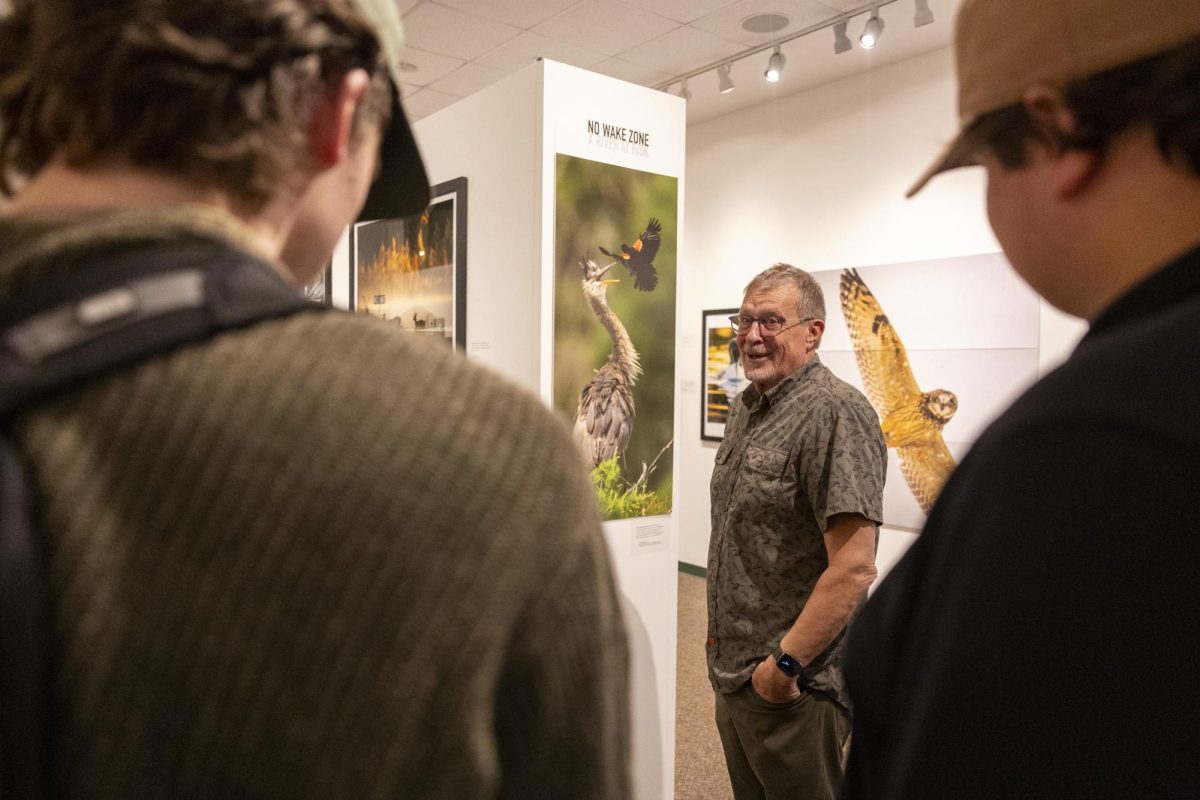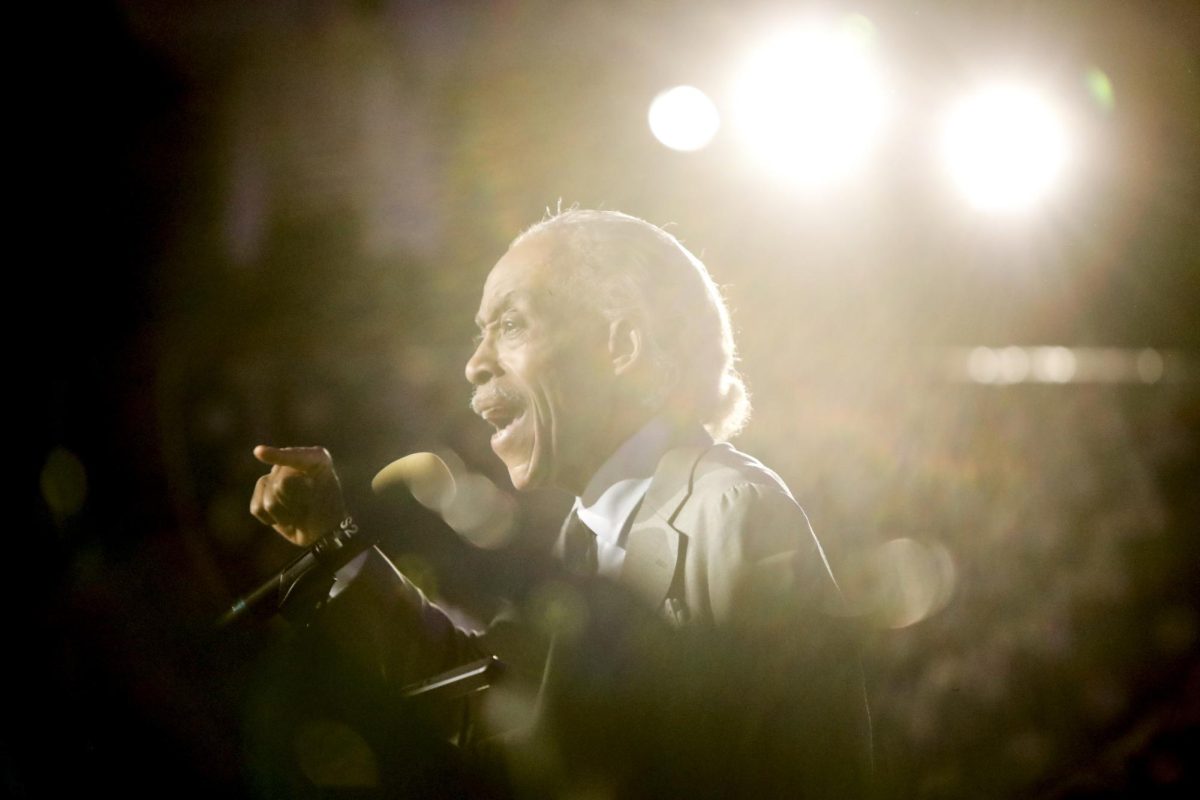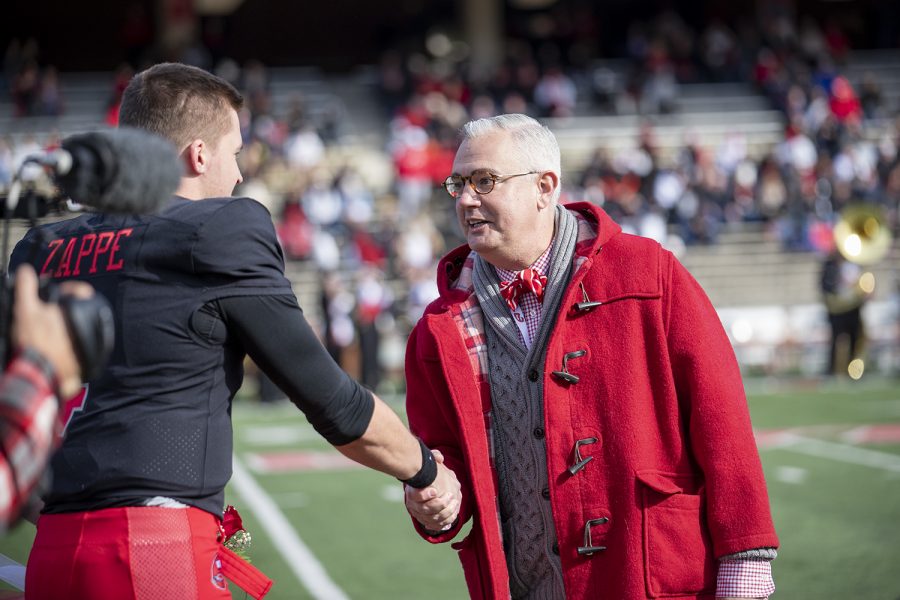WKU’s preliminary agreement with Shaanxi Normal University (SNNU) will
include opportunities for student and faculty exchanges, according to the agreement signed by WKU President Timothy Caboni and SNNU President You Xuqun.
The memorandum of understanding, which was signed by both university presidents on Oct. 30 during Caboni’s trip to China, features “collaborative degree programs” that will give students the opportunity to study psychology and journalism at both schools.
WKU students who take part in these programs can study abroad for two-to-four weeks, one full semester or one full year, according to John Sunnygard, associate provost for global learning and international affairs.
The agreement also states the two schools are working to create a joint doctorate of education program. Students studying abroad at SNNU can also spend multiple years abroad, as the agreement allows psychology students to spend two years at each school, and journalism students can spend up to three years at one school, while completing one year of their degree at the other.
Chinese students coming to WKU can also participate in these programs. Because of differences in curriculum requirements, Chinese students will have more course options when they come to WKU. WKU students will have fewer options when they go to SNNU.
In order to complete their degree in these programs, students will need to fulfill the degree requirements for their home institution, Sunnygard said. The courses taken outside a student’s home institution must be approved by their home institution.
The curriculum at one university might not meet up with the curriculum at the other, but that isn’t a requirement of the program, Sunnygard said.
“We are seeking to develop high-quality, affordable international opportunities for WKU students that will enhance their future career prospects,” Sunnygard said in an email. “As a result of these partnerships, study abroad opportunities for WKU students will be significantly expanded.
“WKU students will be able to take WKU courses in China from WKU and possibly Chinese instructors in English.”
“Chinese students are very interested in studying in the United States,” Sunnygard said. “[T]he most respected and lucrative opportunities are often those available between a Chinese university and an American university. It also recognizes that Chinese universities seek and respect the academic mission of US universities.”
Sunnygard said the goal is to make this study abroad experience just as affordable — if not more affordable — as the cost of that at WKU.
“The Chinese partner universities, because we now have an agreement, are able to make scholarships available to WKU students,” he said.
These agreements also make it possible for faculty to teach abroad. These teaching assignments would be short-term, Sunnygard said, and no one would be required to participate.
“We will be working with WKU’s academic departments to explore opportunities that best fit their goals,” he said. “No one is obligated to participate, but these agreements open the door to engaging with the largest market on the planet.”
Mac McKerral, a journalism professor in the School of Media, has shown opposition to the potential trade-off of faculty, though he has no issue with student exchanges.
“If Chinese students want to come here, and they want to take journalism courses, let them come,” McKerral said. “They have in the past. If our journalism students, our School of Media students, want to go to China and take courses, they can have at it.”
McKerral has raised concerns about faculty exchanges for journalism courses due to China’s lack of press freedom. China ranked 177th out of 180 countries in press freedom this year, according to Reporters Without Borders.
McKerral addressed his concerns in an email to Robert Dietle, the interim director of the School of Media, as well as all faculty in the school.
“China is a totalitarian regime with a state-run news media that persecutes journalists and others in the creative arts such as film, who do not walk the party line,” McKerral said in the email. “That persecution takes the form of imprisonment and worse.
“The Chinese government has no respect for any of the five tenets of the first Amendment on which the SoM journalism curriculum is based and on which its accreditation hinges.”
McKerral suggested that WKU form partnerships with countries that rank high in press freedom. McKerral’s suggestions included Norway, Finland, Sweden, the Netherlands, Denmark, Switzerland, New Zealand, Costa Rica and Ireland.
He hopes once these preliminary agreements become more concrete, they won’t involve faculty, and will stick to just student exchanges.
“I’m hoping that when they start to formalize, that they’ll leave us out of the equation,” McKerral said. “…I’m just not wanting our School of Media signed onto something in writing with China when it comes to journalism.”
Bob Skipper, WKU’s director of media relations, said that this agreement is not about teaching United States journalists on how to operate like the Chinese media.
“It’s not necessarily to train U.S. journalists on how China runs its media,” Skipper said. “It’s to provide them with an understanding of how China approaches its media.”
“[These agreements] are designed to give us a better understanding of China given that they are such an economic powerhouse and such a major player on the world stage,” he added.
In addition to signing an agreement with SNNU, Caboni also celebrated a previously signed agreement with Jilin Agricultural University that will allow students to spend two years studying abroad for an animal science program, Sunnygard said.
Editor-In-Chief Jeremy Chisenhall can be reached at herald.editor@wku.edu. Follow him on Twitter @JSChisenhall.




